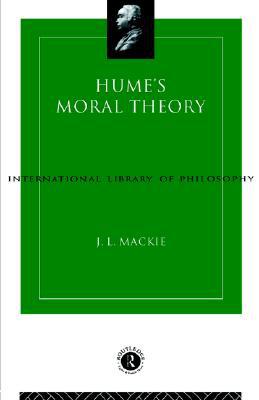

 |

|

The average rating for Hume's moral theory based on 2 reviews is 3.5 stars.
Review # 1 was written on 2019-05-21 00:00:00 Luigi Fagioli Luigi FagioliThis book definitely challenged my current take on morality, or perhaps more so just how closely I align with Hume on this issue. Granted, it seems that most of the disjunction lies at the level of syntax and moral taxonomies, rather than actual disparity in overarching moral claims. Would be fascinating to have him around today to see him elaborate on a more modern version of his 'sentimentalism' and artificial vs natural virtues theory. Overall, it was great to have someone like Mackie dive deep into Hume's relevant beliefs, as it's so often a one and done in referencing Hume with respect to morality, namely Hume's 'ought from and is' distinction. One thing I did appreciate was how much his ideas converge with the overall outline of Hobbes' analysis, about how so much comes back to self-love. However, to the extent that they differ in details, more reading needs to be done on my part. I perhaps wasn't so clear on the 'absolute' of government that Hobbes' theory necessitates, and need to be sure that Hume's claim truly do undermine such propositions from Hobbes. A great book nonetheless, and one that again highlights the base passions the reason itself relies on. Highly recommend for anyone who wants to get beyond the prima facie understanding of Hume's moral beliefs, and also need an introduction to how helpful Mackie is in digesting older philosophical content! |
Review # 2 was written on 2016-01-23 00:00:00 Anna Klapacz Anna KlapaczI like Mackie, but he was way too obsessed with his error theory and tried to encompass all sorts of doctrines under its guise. His reading of Humean moral judgments is that of an error theorist. Unsurprisingly, Mackie adopted a similar position with respect to Locke's secondary qualities in another of his books. Mackie seems to neglect the fact that Hume took moral distinctions to have a reality of their own, while Boyle (and potentially Locke himself) never doubted the reality of secondary qualities. Oh well... Besides this minor point, this book remains a robust introduction to Hume's moral theory, one that came highly recommended from my professor in the history of moral philosophy. Furthermore, the chapter where the metaethical theories of Hume's predecessors are discussed (people like Hobbes, Clarke and Hutcheson) is great. |
CAN'T FIND WHAT YOU'RE LOOKING FOR? CLICK HERE!!!